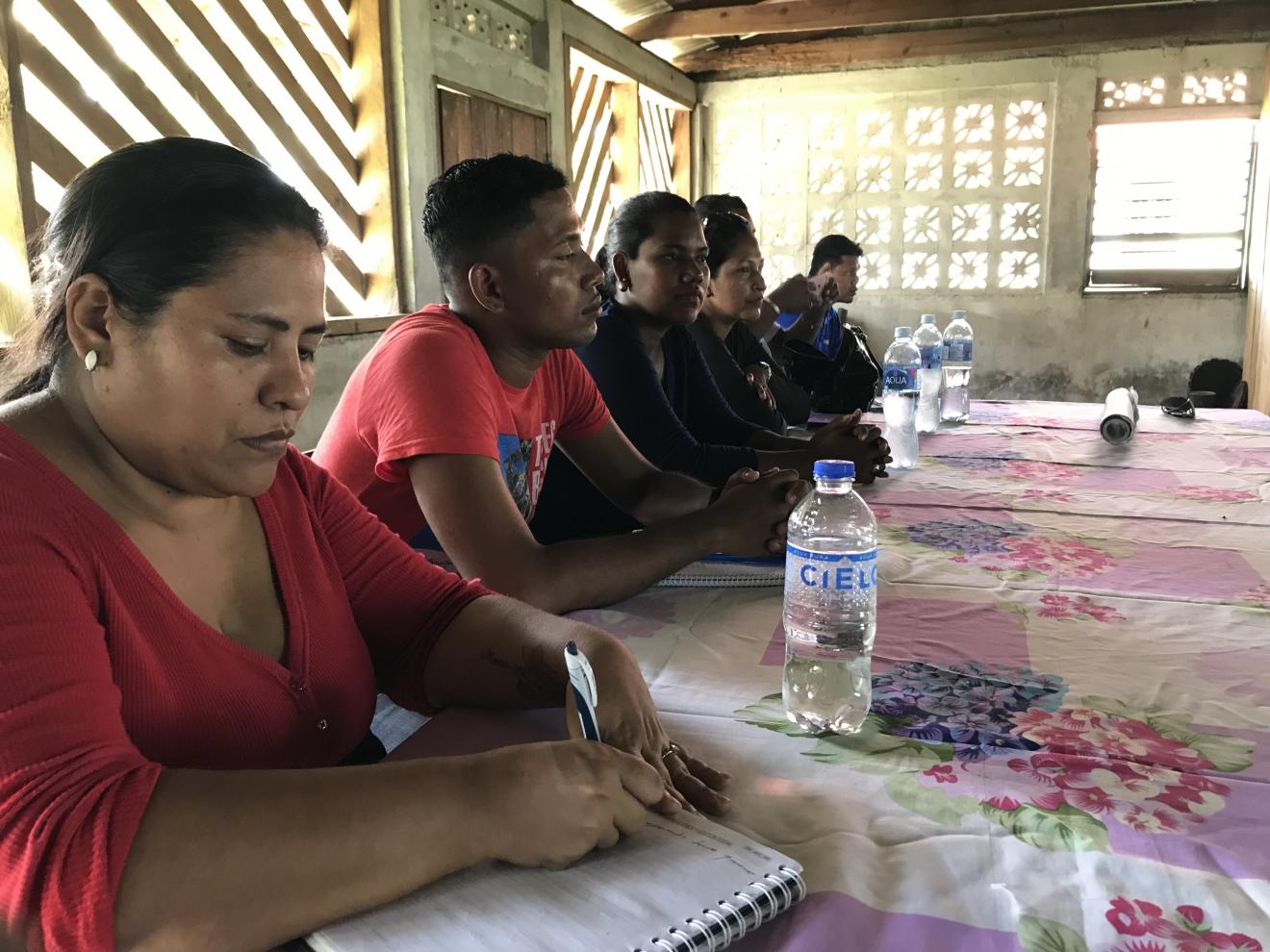
Synergy with the community in Bilwi
By: Neylin Calderón
The Institute of Natural Resources environment and sustainable development (IREMADES-URACCAN), with the collaboration of European Union agencies initiated the first cycle of technical-practical training, with the volunteering called "towards community and participatory risk management: strengthening knowledge in disaster risk reduction on the North Caribbean Coast".
On August 26, 2019, a visit was made to the indigenous community of Karatá, in order to conduct a conversation on the impacts on fisheries, agriculture, productive cycles adaptation measures in the face of coastal erosion, the product of lagoon swell, in addition to teacher Anny Marley, coordinator of the Center for Multi-Ethnic Women's Studies and Information (CEIMM-URACCAN), shared with the community on the issue of gender and the environment.
Project objectives
Among the topics taught by teacher Anny was the role of women in the contribution of preventing disaster situations, carrying out actions such as reforestation, cleaning, recycling, environmental education to families and community.
In this regard, Graduate Lennin Green, coordinator of the IREMADES/CISA of the URACCAN Bilwi campus, explained in general the importance of the project "Strengthening knowledge in disaster risk reduction in the North Caribbean Coast", as well as how we have been working from URACCAN on the issues of climate change and risk management.
Also, with this visit to the Karatá community began with the first meeting of the training that is being given to 20 participants from different institutions involved in the issues of climate change, this opens the first cycle of this project, thus observing and listening to the expressions of the community on the impacts they have had for these natural disasters.
For her part, the leader Saira Ingram Gutierrez of the indigenous community of Karata, said that women should participate in decision-making that contribute to reducing irrigation in communities taking into account the experiences of the ancestors.
- Log in to post comments
- 27 views
